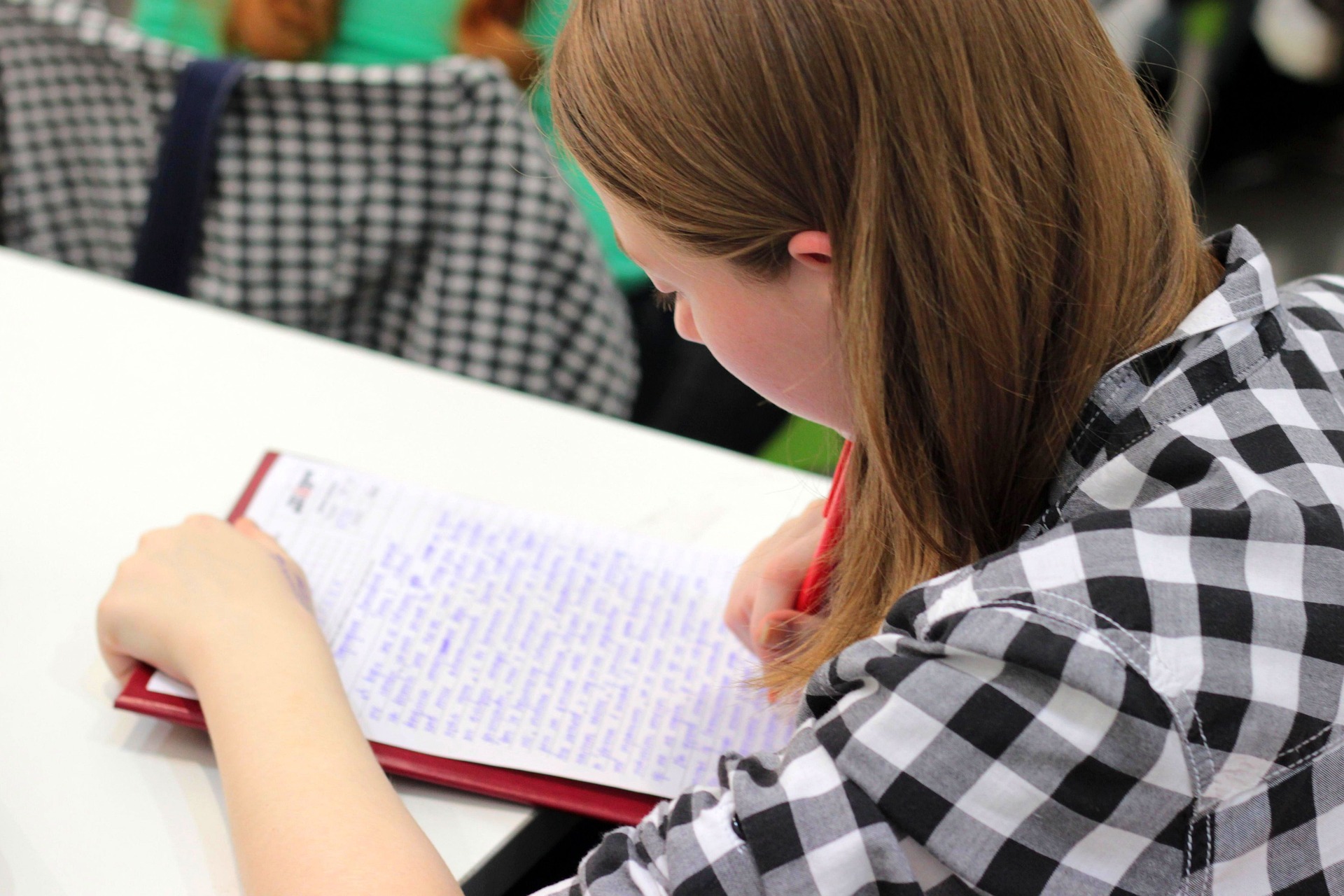To become a better student—‘better’ meaning getting good grades, not missing homework assignments, and passing your tests—studying has to be part of a daily routine.
Don’t make that face! Developing good study habits may sound daunting (or boring), but we know for a fact you can make the process both fun and effective so you’ve come to the right place.
In this article, we’ll cover the following:

How to Make Studying Fun
Studying doesn’t have to be drudgery. Since it’s your personal time, you can make it fun. And if it’s fun, you’ll do it more, won’t you? Especially when you start seeing the results of your efforts, like feeling less anxiety before taking a test because you know the material and seeing your grades improving.

Make It a Game
Gamify your study time by using a productivity app like Habitica to make your tasks more enjoyable. Quizlet offers study tools including flashcards and game-based quizzes, or Kahoot, which can turn your notes into study games.
Create a Study Group
Studying with another person or in a group can make it more enjoyable and engaging. You can quiz each other, share study tips, and get help on a subject if you’re struggling. But clear boundaries must be set beforehand, so the group study session doesn’t become a play date or a video game tournament.
Explore Multimedia Options
Are there podcasts or videos on the subject matter that could help you? Search online for other ways to enhance your study time with different types of learning opportunities.
Treat Yourself
Set a study goal and then reward yourself when you reach it. Your treat could be a sweet snack or an hour of game time. Whatever gives you that well-deserved pat on the back.
Tips for Smarter Studying
Developing effective study habits, no matter what age, will help you work smarter, not harder, and give you a stronger foundation as you advance through school, on into college, and into your career. That’s right. Studying is a lifelong activity, not just something you’ll do during your school days, so getting into a groove now will have far-reaching benefits.

Establish a Distraction-Free Zone
This could be the solitude of your bedroom with a “Do Not Disturb, I’m Studying!” note on the door or a quiet corner of the library. Wherever you find needs to be without things that distract you, like gaming devices, your phone, or a younger sibling.
Divide and Conquer
Create a plan for what you need to study and divide it into smaller, manageable chunks either by subject or volume or however it works best for you. Doing this will keep you from feeling overwhelmed if you have a lot to do.
Set Goals for Each Session
This goes hand-in-hand with dividing your study load into chunks. Set realistic goals each time, whether it’s subject-based or time-based. You’ll feel a gratifying sense of accomplishment after you reach each goal. But don’t beat yourself up if you don’t achieve them every time. Studying sometimes takes longer than you plan.
Quiz Yourself
Instead of just reading your notes over and over, try quizzing yourself. Write your questions on one side of an index card and the answer on the back. Shuffle the cards, then start. This activity is also a great idea when studying in groups.
Take Good Notes
Having good notes to review during your study time can reduce your time studying. If you’re not much of a note taker, relying on your memory to hold all that knowledge, get out of that habit. Hearing something and then writing it down increases memory retention, so taking notes on both what the teacher is saying in class and when you’re reading through the materials is ideal for more effective studying.
Paying Attention in Class
This one should go without saying, but distractions are all around us at all times of the day. The classroom is no exception. So if something or someone in the classroom is making it difficult for you to pay attention, even if it’s just seat placement, ask the teacher to help.
Stay Organized
If you have a lot going on with family life and extracurricular activities, you might need to keep track of upcoming tests and assignments on a calendar. Recording them will keep you from missing any and allow you to see how much time you’ll need to study.
Make Time!
If you’re involved in extracurricular activities or lessons or have a part-time job, making time to study may be challenging. But studying is arguably just as important as other priorities in your life, so make sure to carve out some time for it.
Plan your Study Sessions
It’s recommended to schedule a specific time each day to study, set how many days during the week you’ll do it, and stick to it. Block out your study time on the calendar just like you do for other activities. Even if you’re all caught up, stick with this time to review your notes or brush up on the next assignment. Staying consistent will help this become a habit, which will help you tremendously as your progress through school to college.
Take Breaks
Non-stop, marathon study sessions will only drain you and could have a negative impact on your subject-matter retention. Instead, take frequent breaks to rest your mind and stretch your body, but avoid picking up your phone to check social media, which will not give you the mental break you need.
Get Plenty of Sleep
Your body requires sufficient sleep to recharge and prepare for a new day. Not enough sleep can reduce your ability to retain information, pay attention, and deplete your overall motivation.
Why Cramming Isn’t the Answer
Why study, you might ask? Why not just cram before a test or assignment and be done with it?

Staying up late the night before, furiously trying to memorize the material you think might be on the test, only compounds your stress. Plus, the lack of sleep is detrimental to your physical well-being, not to mention your brainpower. Overworking the brain too much and too often increases anxiety, frustration, fatigue, and can lead to confusion.
Like the body, the brain needs time to relax and refocus. Cramming tends to backfire as the stress on your brain can actually cause you to forget what you tried to squeeze into it the night before, leaving you staring at the question on the test in bewilderment.
You may not realize it, but studying is actually a skill. For most people, studying doesn’t come naturally; just like any skill, you must practice consistently to become good at it.
Studying just an hour or two a day is usually enough to make it through high school with passing grades. However, when you get into college, you’ll discover that there aren’t enough hours in the day to fit in all the studying you need. Therefore, developing effective study habits sooner rather than later becomes crucial to not flunking out.
Developing effective study habits will take time and effort. You’ll probably have to try several different methods until you find your groove, so be patient with yourself. Just don’t give up.
Learning good study habits when you’re young is ideal, however, it’s never too late. New skills can be learned at any age. You know yourself best, so find exciting and fun elements to inject into your studying sessions to make them more enjoyable.
You don’t have to try to figure this out on your own.
It might be challenging to discover what works best for you or even where to start. We can help! In one of our hourly tutoring sessions, we’ll discuss your needs and how best you learn. From there, we can advise on the most effecitve strategies for your particular workload.
Talk to our certified Washington State teachers and trained specialists today.
425-385-8224 Email us
They have helped her prioritize and organize, develop good study habits, break down difficult assignments in more manageable and understandable ways, assist her with test preparation and provide direction and encouragement.
– Kathleen W.
Article source(s)
Sukru Burc Eryilmaz, Ph.D. Candidate, Stanford University https://web.stanford.edu/~eryilmaz/cramming_is_ineffective.html
